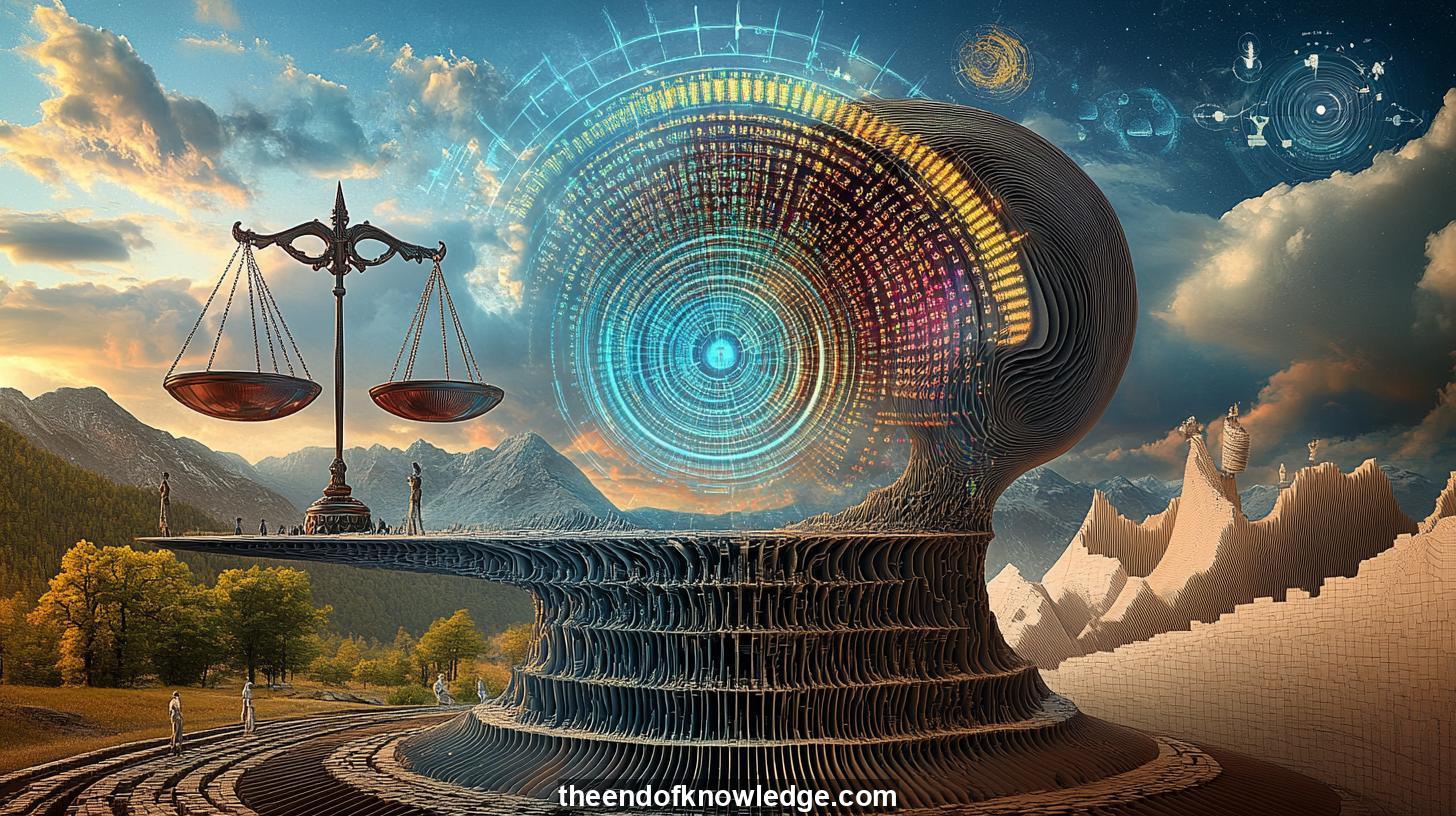 >
>
Concept Graph, Resume & KeyIdeas using DeepSeek R1 :
Resume:
The discussion revolves around the integration of artificial intelligence (AI) into justice systems, exploring its transformative potential and ethical implications. Experts highlight the need for a new paradigm in justice, emphasizing the importance of transparency, accessibility, and fairness. The conversation touches on the challenges of digitalization, the role of AI in legal processes, and the societal impact of such integration. There is a focus on balancing human oversight with AI-driven solutions to ensure equitable outcomes. The dialogue also addresses the importance of education and the democratization of access to justice, underscoring the need for systemic change to adapt to technological advancements.30 Key Ideas:
1.- AI integration into justice systems necessitates new legal and ethical frameworks to ensure fairness and transparency.
2.- The justice system must adapt to technological advancements while maintaining human oversight and accountability.
3.- Transparency in AI decision-making processes is crucial to build trust and ensure accountability in judicial outcomes.
4.- Ethical considerations must guide the development and implementation of AI in legal frameworks.
5.- AI has the potential to democratize access to justice by providing efficient and cost-effective solutions.
6.- The balance between human judgment and AI-driven solutions is essential to maintain the integrity of the justice system.
7.- Education and awareness are critical to prepare society for the integration of AI in legal processes.
8.- The role of AI in predicting judicial outcomes raises concerns about bias and the need for robust validation mechanisms.
9.- AI can enhance the efficiency of judicial processes but must be designed to respect human rights and dignity.
10.- The development of AI in justice systems requires interdisciplinary collaboration between technologists and legal experts.
11.- AI-driven tools can assist in legal research, reducing the workload on human professionals and improving accuracy.
12.- The implementation of AI in justice systems must consider the societal impact and potential disparities.
13.- AI can facilitate alternative dispute resolution methods, reducing the burden on traditional judicial systems.
14.- The ethical use of AI in justice systems demands clear guidelines and regulations to prevent misuse.
15.- AI can help identify patterns and predict outcomes, aiding in the prevention of crimes and conflicts.
16.- The integration of AI in justice systems requires a reevaluation of existing legal frameworks and standards.
17.- AI can enhance the accessibility of justice for marginalized communities by providing affordable solutions.
18.- The use of AI in justice systems must be transparent to ensure public trust and confidence.
19.- AI can assist in the interpretation of laws and regulations, providing consistent and unbiased interpretations.
20.- The development of AI in justice systems must prioritize human-centered design to serve societal needs.
21.- AI can help address the backlog of cases in judicial systems by streamlining processes and improving efficiency.
22.- The ethical implications of AI in justice systems require ongoing monitoring and evaluation.
23.- AI can facilitate the creation of a more equitable justice system by reducing human bias in decision-making.
24.- The integration of AI in justice systems must be accompanied by measures to address potential biases and errors.
25.- AI can enhance the accuracy of judicial decisions by analyzing vast amounts of data and precedents.
26.- The use of AI in justice systems requires a balanced approach to maintain the humanity in legal processes.
27.- AI can assist in the enforcement of laws and regulations, ensuring compliance and accountability.
28.- The development of AI in justice systems must consider the long-term implications for society and democracy.
29.- AI can help bridge the gap between legal theory and practice, providing practical solutions to complex issues.
30.- The integration of AI in justice systems represents a significant shift in how justice is administered and perceived.
Interviews by Plácido Doménech Espí & Guests - Knowledge Vault built byDavid Vivancos 2025